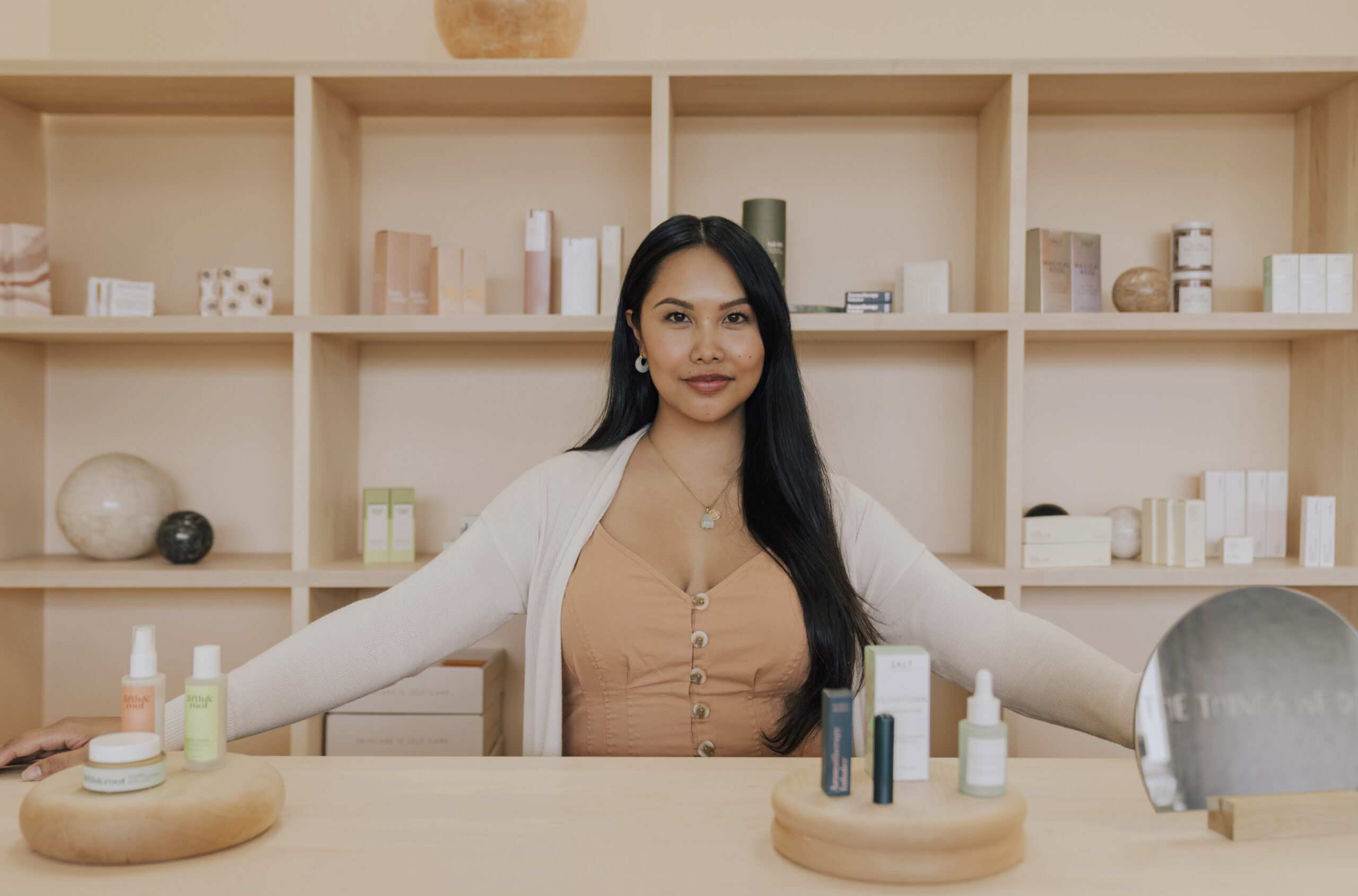
Growing up, Vanessa Lee would sneak off with her mother’s copies of Glamour and Cosmopolitan to read about the latest beauty trends and do-it-yourself tutorials.
Channeling her lola’s background as a beautician back in Abulug, Philippines, Lee would then take what she learned — from applying cut crease eyeliner to using available ingredients in her kitchen to concoct face masks — and experiment on friends and family.She eventually became their go-to for help in getting ready for dances and special events, and through that, she noticed how others would get a confidence boost.
“I love beauty and cosmetics, but my passion is really helping others feel good,” the Southern California native told the Asian Journal in a recent interview.
Today, Lee is a sought-after medical aesthetic provider, and the founder and CEO of The Things We Do, a Los Angeles-based beauty concept bar beloved by the local skincare community and trusted by celebrity clients like Jessica Alba.
Like many younger Filipino Americans, Lee was pushed toward a career in nursing, forgoing a short-lived dream of becoming a travel writer or doing something beauty-related, or so she thought.
It wasn’t until a cousin told her that she could still incorporate that passion by providing aesthetic and cosmetic services.
“During nursing school, people would be asked about their specialty and would say labor and delivery or ICU, but I said I wanted to work in beauty,” she said. “All my classmates and teachers were concerned for me because they said it wasn’t very stable. Like, ‘Don’t you want to be a real nurse?’”
After graduating from Mount Saint Mary’s University, Lee went on Craigslist for job opportunities as a cosmetic nurse, though the pay was minimal compared to working in another specialty at a hospital. Still, wanting to break into the field, she found a part-time gig on the weekends, while working during the week in the emergency room at UCLA Medical Center and then as a travel nurse in neurosurgery.
She made her rounds in plastic surgery and dermatology offices and “loved every part of this type of business” when working directly with patients. However, the downside was being pressured to fill quotas every day and to convince patients to get injections like Botox even if they technically didn’t need them.
“There was a lot of harping on people’s insecurities. At a certain point, I didn’t think this field was for me because I felt like I wasn’t helping people feel better. I was making them feel worse about themselves by pointing things out and that’s exactly the opposite of why I got into this field,” Lee said.
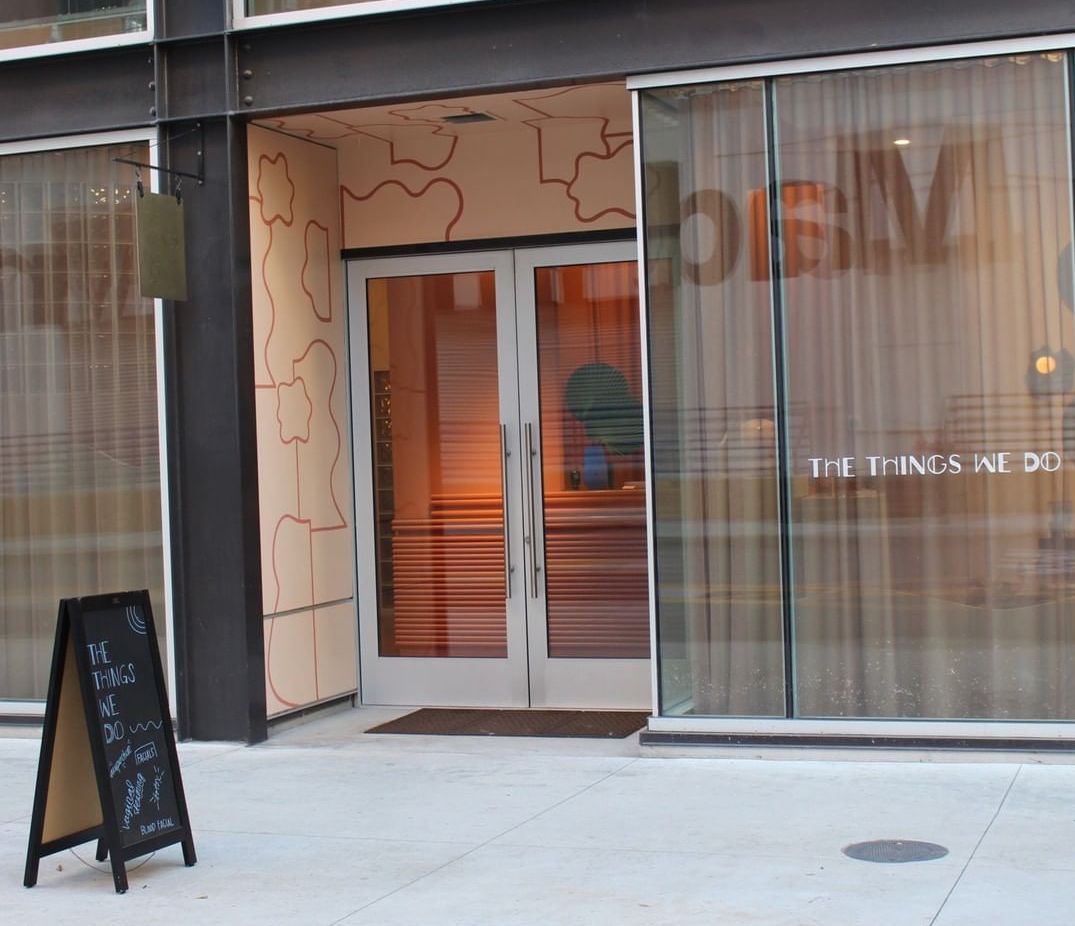
In the name of beauty
Despite the doubts, Lee doubled down on practicing injectable techniques and realized that if she was helping other providers build their businesses, why couldn’t she work for herself and follow her own mission and ethics?
“That way, I could say ‘no’ to patients who really didn’t need certain injectables and instead might need emotional health, like a licensed therapist, who could work with them if we think they might have body dysmorphic disorder,” she said. “I could do this — where we marry the world of what’s good for you on the inside and what’s right for your soul and your mental well-being.”
Lee opened the first location of The Things We Do — referring to the things women do for beauty — at the ROW DTLA in December 2018.
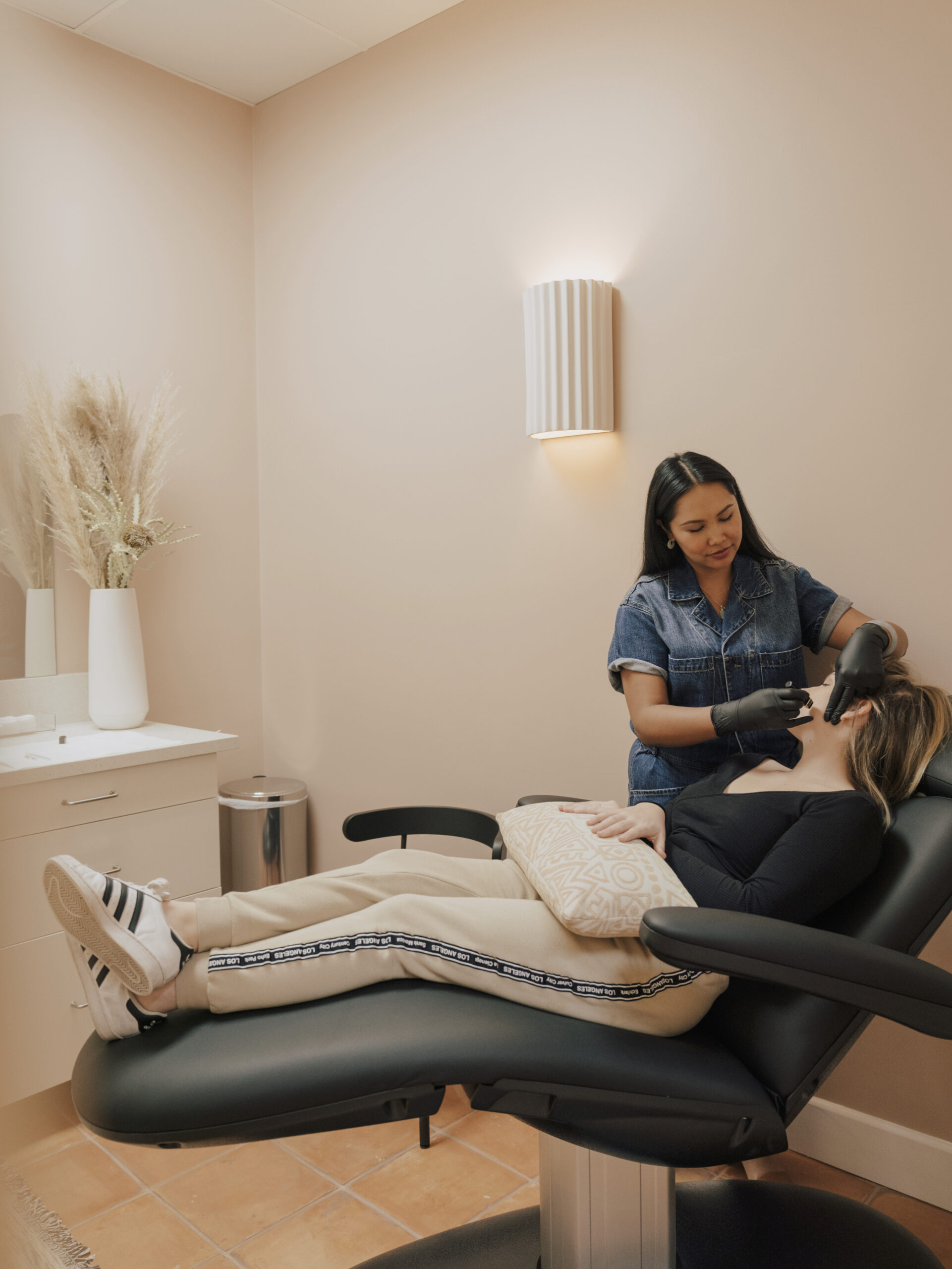
When coming in for a treatment, clients will be asked by Lee or other providers: “What do you love most about your face?”
“What we say ‘yes’ to is mental health, inclusivity and doing the right thing for patients naturally. How can we balance your natural features and how can we preserve how you look at your youngest, happiest self with what you’re comfortable with instead of just giving someone huge lips? We really work on facial balancing and profile harmony,” Lee said.
It’s what she calls the “natural intention beauty guidance,” a philosophy and conscious artistry of injectable services, from Botox to Kybella (a fat dissolving treatment for under the chin), and facial and holistic health treatments that are rooted in Filipino and other traditional practices.
Malunggay (moringa), used as a vegetable ingredient in a lot of Filipino dishes, also has beauty benefits like skin brightening and anti-aging, according to Lee.
“My lolo used to cook with malunggay and tell me it was way stronger than spinach. It was like a miracle tree in the Philippines and that always stuck with me. It’s having its moment and it’s only getting bigger,” she said.
The plant is used in the beauty bar’s Healing Facial treatment and is an active ingredient in her skincare line’s Dew & Go™ Microneedling Infusion Stamp, a gentler form of microneedling, that also contains snail mucin, an antimicrobial and hydrating substance popularized by Korean beauty.
Stepping inside The Things We Do immediately breaks down the notions of a medical spa and its architecture has made it a destination in itself. Every corner is photogenic, dynamic, and plays with shapes and edges. The walls are not white and sterile, but rather are painted and adorned in light pink, peach and warm orange tones.
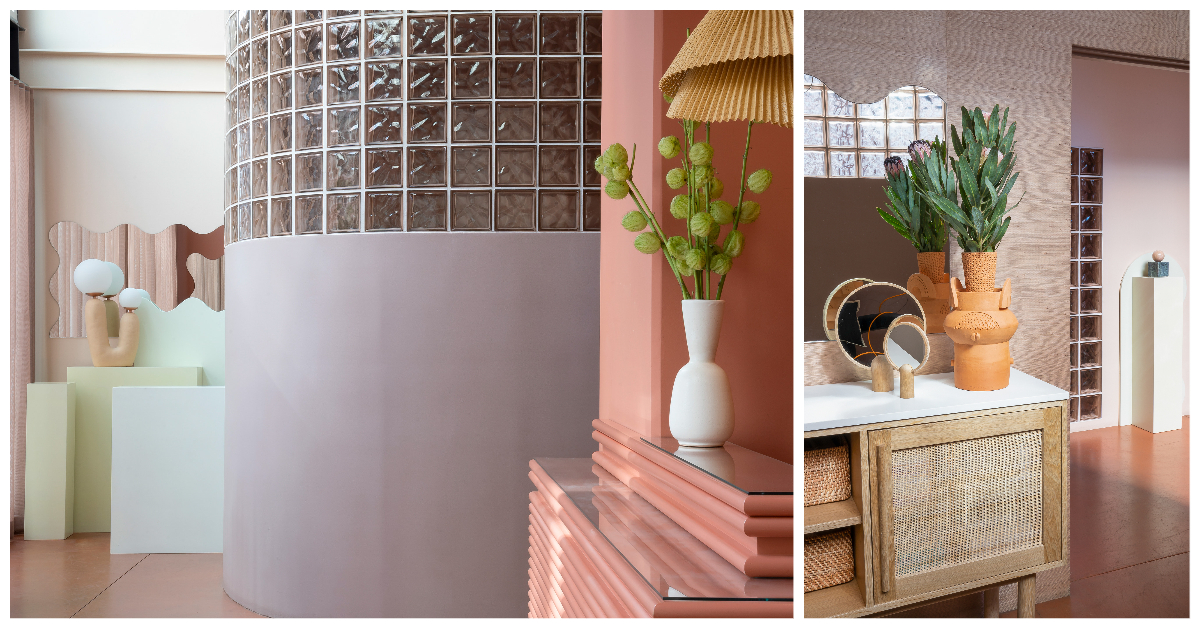
Drawing on the hospitality Filipinos are known for, Lee was intentional about having aspects of her culture referenced in the space and worked with interior decor team Wall for Apricots to build out this vision.
The wallpaper is textured like batik; mirrors have wave-like curves alluding to the thousands of Philippine islands; tiles are reminiscent of capiz shells; and treatment rooms are named about women in her family.
“When people start asking about our design, I get to tell the story of my women who came before me, like my grandmother who was a beautician,” Lee said.
She went into this entrepreneurial venture knowing it was an investment and braced for not turning a profit until the second or third year of operation.
However, the business exceeded expectations and raked in $3.2 million in sales in that first year.
Even then, her mother relayed concerns about her financial stability. To prove that she was doing just fine, Lee had a paycheck “accidentally” sent to her mother’s address, knowing she would open it.
“She called me and was like, ‘Anak, this is good money.’ I told her she didn’t have to worry and we made it,” Lee said. “Now, she finally understands it’s a healthy business and we’re doing great even during this craziness of 2020.”
Operating under the new normal
Despite the coronavirus pandemic and safety measures that forced personal care service businesses to temporarily close, Lee said The Things We Do has been able to weather the challenges and was not forced to lay off any staff members.
“Our month to month from July and August were higher numbers than what we had last year when we had more people working with us and fully open with no restrictions. This was also while having to close three times,” she said.
Early on in the business plan, she was intentional in building a social media presence where followers could turn to for skincare recommendations and free virtual consultations, and an e-commerce component where individuals — who can’t physically come to the location — could shop The Things We Do’s beauty line as well as other curated products from other brands.
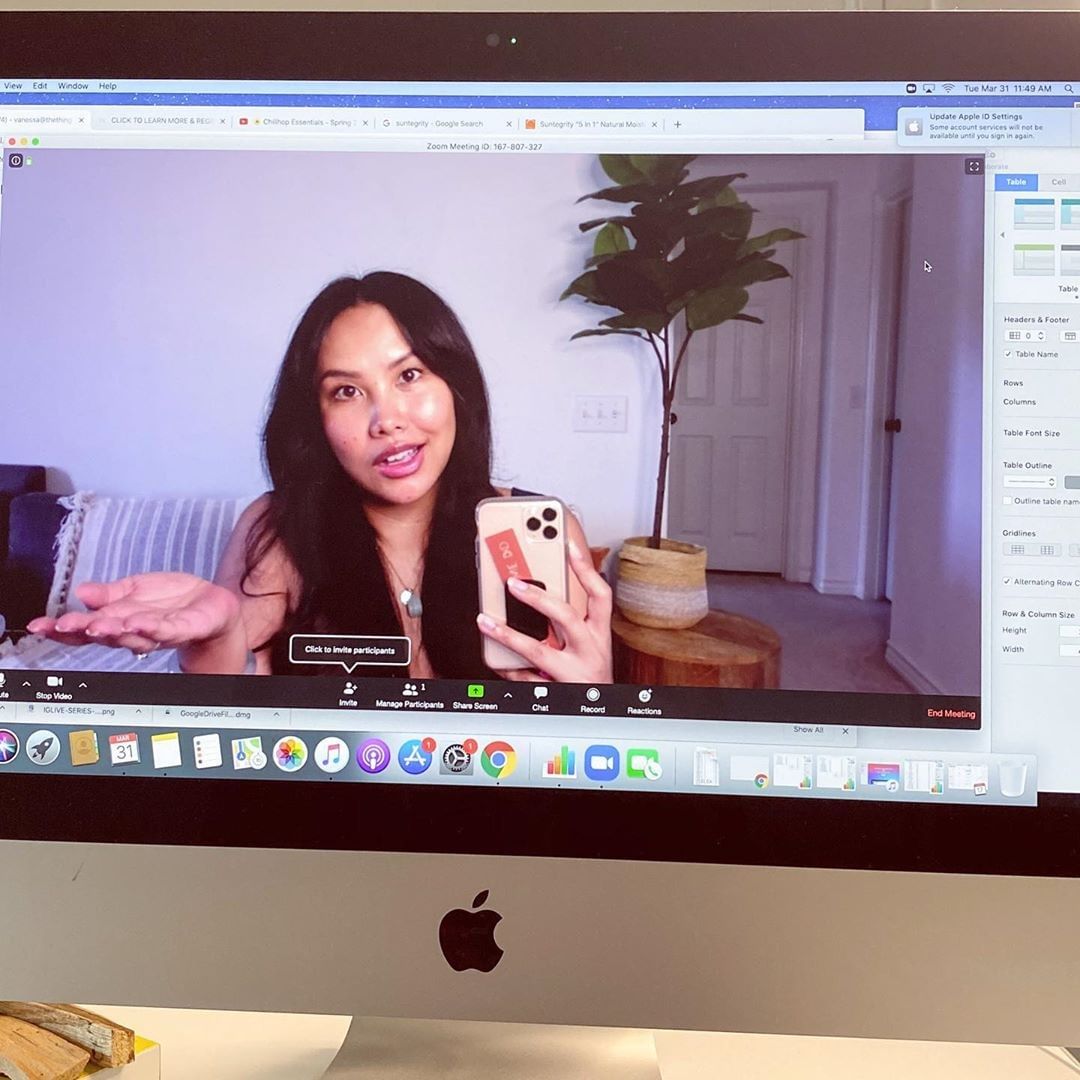
“This was our biggest savior during COVID. I knew how important that was before but I had no idea the magnitude of how important it really would become during quarantine and when everyone was at home for three months,” Lee said, adding that the site experienced an uptick in gift card purchases and performed well during its Mother’s Day sale.
Though spending on skincare as part of one’s self-care seems to be the trend at the moment versus makeup and other beauty products, Lee suggested that consumers should be mindful about purchasing products, especially if they can’t test them beforehand.
“Get to know your skin and how it behaves instead of letting something else lead you,” she said. “Right now, there are all these different influencers and on TikTok, every other person is an expert on skin. It’s really important to understand that these people are talking about their own specific skin journey and that might not be for you.”
Earlier this year, The Things We Do opened its second location in Lee’s suburban hometown of Chino Hills in a complex along Grand Avenue.
“The attention and list of A-list celebrity patients are all fun, but I felt that I wanted to give back to my community and the place where I grew up and pay attention to the patients who started that all for me,” Lee said. “It’s really interesting because the juxtaposition of the location in Downtown is like our glamorous, very cool, very Los Angeles setup and in Chino Hills, we can bring a piece of that, but it’s something fun for the community and for me too.”
The Things We Do has reopened both locations for the injectable services by appointment, but is still pausing its facial treatments, which can be done outdoors, because of the poor air quality and high temperatures.
Defying beauty standards, business norms
Amid the protests and calls for racial and social justice, many Fil-Ams opened up about experiences with skin whitening and found themselves having deeper conversations about colorism.
As a Filipina with darker skin, Lee recalled growing up and hearing comments from relatives about her skin tone, but has been thankful that her mother empowered her to have that self-love.
Instead of “skin whitening” and the dangerous effects certain products can have, she is mindful of her words and uses skin health and brightening in her tutorials.
“It’s good for your skin to look plump, even-toned, [and] your sunspots are taken care of because you’re doing the work preventatively and are using the right amount of sunscreen,” Lee said. “But I’m not going to whiten your skin. I’m very clear about that.”
Lee is on the diversity council for Allergan, which manufactures Botox and Juvéderm, to ensure there’s a space for Black and brown women. In addition to the medical side, as an entrepreneur of color in this space, Lee recognizes her responsibility in mentorship and advocating for other women to get financial resources to start their own businesses.
“It’s very important for me to bring up that I did not come from money nor did I have money to start with and I have two young children. So if you have an idea…but feel like funding is holding you back, don’t look at other people and wish for resources at your disposal to live out this dream. The best people in business and most successful people I feel like are scrappy and resourceful and have true grit,” she said.
As for Lee’s future plans: develop a skincare line for a younger demographic and explore expansion. New York and Hawaii are high on the list, but down the line is to have a location in the Philippines as a full-circle moment.
“There’s an excitement and support for Filipino Americans entrepreneurs in the U.S. But when I talk to my cousins in the Philippines, they’re like ‘Why are you so obsessed with Filipino stuff?’” Lee said. “My ancestors paved the way so that we can do this and bring it back for our people.”


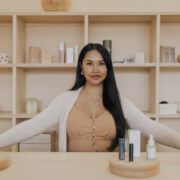

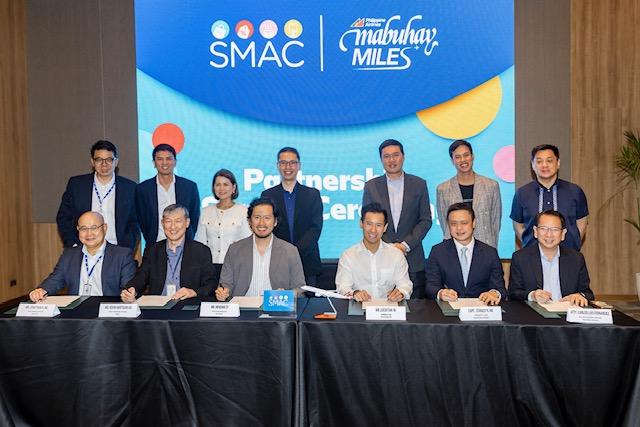


Its always inspiring to see female entrepreneurs succeed.
Great article. As a doctor I am curious how she able to perform these procedures without a supervisory physician, especially as a RN. Legally these cosmetic procedures are done by CRNAs (doctorate now entry degree), NPs, or PAs. Was there an inquiry into who is the supervisory physician as mandated by California law, there is no mention on her website?
Your article is very good and useful, thank you for sharing, bk8 hopes that next time you will have more good articles to send to all readers.